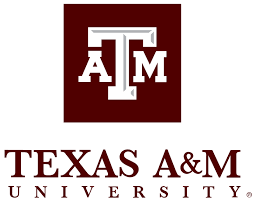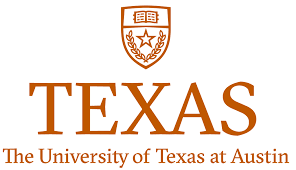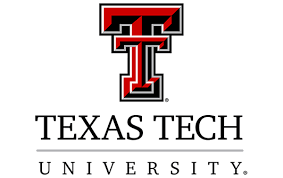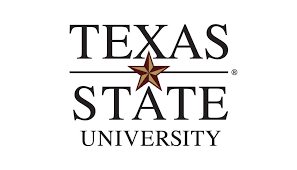Find Your Perfect Business Degree
www.business-management-degree.net is an advertising-supported site. Featured or trusted partner programs and all school search, finder, or match results are for schools that compensate us. This compensation does not influence our school rankings, resource guides, or other editorially-independent information published on this site.
According to the U.S. Bureau of Labor Statistics (B.L.S.), employment in management occupations has a projected 5% growth between 2022 and 2032. This means 505,000 new jobs will be created, faster growth than average for all occupations. The growth will be fueled by the creation of new organizations and the expansion of existing companies.
Furthermore, workers in management occupations have a median annual wage of $105,660 in May 2022, the highest wage among major occupational groups. The combination of growth in the number of jobs and the high wages means that business administration and management degrees are among the most popular countries.
In Texas, holders of an associate degree in Business Administration and Management earn between $25,530 and $27,110 during their first year of employment after graduation. This is higher than the Texas statewide median of $20,853!

Graduates with a bachelor’s degree in Business Administration and Management earn higher salaries, too. Sales managers earn $121,060, while human resource specialists earn $60,350 annually. Occupations with in-between salaries include financial analysts ($84,300), market research analysts ($63,230), and accountants and auditors ($69,350) annually.
The bottom line: Getting a bachelor’s degree in business administration and management pays off! You must then consider earning your baccalaureate degree in these fields if you want to enjoy higher pay, better job security, and bigger benefits.
But we must also emphasize that business administration and business management are two different fields. You must first know their differences to make a smart decision regarding the best career path in your case.
Business administration degree programs typically include a wide range of core business subjects, such as
- Economics,
- Finance,
- Accounting,
- Marketing,
- Organizational Behavior,
- Human Resources,
- and General Management.
Students will then choose their area of specialization or concentration, such as finance, business economics, or entrepreneurship. Every specialization is unique and, as such, students choose elective courses based on their chosen concentration.
Like most degrees, business administration degrees come in four tiers: associate degree, bachelor’s degree, master’s degree, and doctoral degree. The associate’s degree combines an overview of core concepts in business and liberal arts coursework, while the bachelor’s degree involves a more comprehensive view of business topics. The master’s degree covers a more advanced view of business topics, while the doctoral degree may be professional-focused or research-focused.
People with a business administration degree usually find work as benefits administrators, financial analysts, budget analysts, and marketing managers. Their career path will depend on their area of specialization chosen while in university.
Business management degree programs have more focus on leadership, business management, human resources, and analysis, planning, and organization. There are also four tiers in these programs, namely:
- Associate of arts degree programs where students are introduced to management topics, such as project management, business ethics, and human resources.
- Bachelor of arts degree programs provide more depth and scope on management-related courses, including business research, law, leadership, and entrepreneurship.
- Master of arts degree programs where students are provided with more detailed and advanced management lessons, including project management, negotiation, and international business.
- Doctoral degree programs are considered terminal programs and offer advanced courses in conflict resolution, personnel development, and performance management.
Graduates of business management degree programs find work as management analysts, sales managers, office managers, and purchasing managers. Due to their more comprehensive education, they are most likely to lead entire organizations, such as C.E.O.s or Presidents.
Which is the better choice? None is better than the other! Your personal preference will always be your best gauge, so you have to follow your heart.
But if you’re looking for the best public schools to study business administration and management, then we have five of these schools described below!
Texas A&M University – College Station

Prominent Program Features:
Texas A&M University doesn’t only have the largest student population in the United States – 71,109 students in Fall 2020 – but it also has the most comprehensive business administration and management degree programs. As its students and alumni are known, aggies can choose from undergraduate certificate programs as well as bachelor’s degrees, master’s degrees, and doctoral degrees in business.
The university is lauded for its academic excellence, ability to develop leaders across diverse industries, and affordable cost of attendance – a trio of benefits that attracts the best minds from across the U.S. and around the world.
Also, Texas A&M University is one of the few select universities with land, sea, and space grants. As a public university and a flagship university of Texas, this school has extraordinary distinctions. For these reasons, Texas A&M is first on this list.
The Mays Business School upholds Texas A&M’s excellent reputation with more than 6,400 students in all its programs. Every degree and certificate program is designed to equip students with comprehensive education and a holistic view of business organizations, functional expertise, and a business mindset. Students are also equipped with practical knowledge and technical skills that will enable them to take leadership roles in the future.
In particular, the faculty in particular, and the business school emphasize the values of inclusion, diversity, and engagement in decision-making and action-taking at all organizational levels. Indeed, students aren’t just provided with an excellent business education but equipped with a set of experiences that will launch their careers and allow them to make a significant impact.
There’s a dual emphasis that permeates the business curriculum across all tiers. First, students gain a deeper understanding and persuasion of liberal arts and the sciences through a broad-based education. Second, they learn business knowledge and technical and behavioral skills vital to their success as students and professionals.
The courses then include a broad spectrum of subjects, including American history, creative arts, political science, philosophy, mathematics, social and behavioral sciences, and life and physical sciences. Students take these liberal arts and sciences courses with introductory business courses during their early years.
Once students have completed the foundation coursework, they can then choose an area of specialization. The Mays Business School has five academic departments:
- Accounting,
- Finance,
- Information & Operations Management,
- Management and
- Marketing – that offers seven majors:
- Accounting,
- Finance,
- Management,
- Management Information Systems,
- Marketing,
- Supply Chain Management,
- as well as Business Honors.
The Business Honors program is a highly selective program with a separate application process. Students can apply either as incoming freshmen or during their freshman year’s spring semester. Also, applicants must demonstrate academic excellence, leadership skills, strong character, and teamwork and maintain a 3.5 cumulative G.P.A., minimum.
Mays Business School only approves double-degree and second-degree students by exception.
Campus location:
- College Station, Texas
- Galveston Texas
Accreditation: Association to Advance Collegiate Schools of Business (AACSB) International
Acceptance and Graduation Rates:
- Acceptance rate: 58%
- Graduation rate: 55%
Admission Requirements:
- A personal essay detailing the student’s story, including opportunities and challenges
- Non-refundable application fee
- Self-reported academic record (S.R.A.R.) based on an official high school transcript
- Official ACT/SAT scores (The university won’t require these standardized test scores for Fall or Spring 2021 and 2022 freshman applicants due to in-person testing’s continued unavailability. But the non-submission will not create an unfair disadvantage for any applicant)
Prospective students can apply either through Coalition Application or ApplyTexas Application.
The university also has numerous Prospective Student Centers across Texas, said centers with regional advisors ready to answer admissions, academic programs, financial aid, and student services.
Program Options:
Undergraduate: (B.B.A. means Bachelor of Business Administration; B.S. means Bachelor of Science)
- B.B.A. in Business Honors
- BS in University Studies, Business Concentration
- B.B.A. in Accounting
- B.B.A. in Finance
- B.B.A. in Management Information Systems
- B.B.A. in Supply Chain Management
- B.B.A. in Management, Consulting/General Management Track
- B.B.A. in Management, Entrepreneurial Leadership Track
- B.B.A. in Management, Human Resource Management Track
- B.B.A. in Management, Pre-Law Track
- B.B.A. in Marketing, Advertising Strategy Track
- B.B.A. in Marketing, Analytics and Consulting Track
- B.B.A. in Marketing, Healthcare Marketing Track
- B.B.A. in Marketing, Professional Selling, and Sales Management Track
- B.B.A. in Marketing, Strategic Retailing Track
Certificate:
- European Union Business Certificate
- International Business Studies Certificate
- Latin American Business Certificate
- Nonprofit and Social Innovation Certificate
Professional Programs: (5-year duration)
- B.B.A. – Accounting and a Master of Financial Management (M.F.M.)
- B.B.A. – Accounting and a Master of Science
- BS and Master of Maritime Business Administration and Logistics
Graduate:
- Master of Business Administration in Business Administration
- Mays Executive M.B.A. Program
- Mays Professional M.B.A. Program
- Master of Science in Analytics
- Master of Science in Business
- Master of Science in Entrepreneurial Leadership
- Master of Science in Human Resource Management
Post-graduate:
- Doctor of Philosophy in Business Administration
- Doctor of Philosophy in Management
The Final Result:
Graduates of the bachelor’s degree programs in business administration and management are well-equipped for career-launching, entry-level organizational positions. Their academic knowledge, practical skills, and professional experiences are their best tools in rewarding careers across various industries, from education to corporations.
The University of Texas at Austin

Prominent Program Features:
The University of Texas at Austin is one of the top 40 of the world’s best universities. A leading Public Ivy research institution has several distinctions, including being ranked #8 among Best Value Public Colleges, #7 among U.S. Public Colleges, and #14 in Top Public Schools and national Universities. Indeed, UT at Austin deserves these recognitions, particularly for its business school.
The McCombs School of Business, the oldest public business school in the State of Texas, offers bachelor’s, master’s, and doctoral degree programs. Aside from these traditional classroom-based degree programs, it also has collaborative research centers, executive education programs, the Venture Labs Investment Competition, and its competition for the best international business plans. Every year, the school has 13,000 students on average, and these students eventually become part of the 98,000-strong – and counting – alumni across a diverse range of industries.
Its undergraduate business program consistently ranks in the top 10 of the U.S. News & World Report’s national specialty rankings. For example, in the latest 2020 rankings, it’s ranked #5 for the second time in the past three years. Its management program ranked #4, and its entrepreneurship program is at #7 of the top 10 specialties.
The bottom line: If you’re looking for an excellent business school with an affordable cost of attendance, then you should consider U.T. at Austin!
Such academic excellence is the result of award-winning faculty at the helm of instruction. The McCombs professors are authors of cutting-edge research about strategic management, organizational behavior and theory, and entrepreneurship, among other topics. Their works are published in prestigious industry journals like the Academy of Management Review, Strategic Management Journal, and Administrative Science Quarterly which, in the process, contribute to McCombs’ leadership in education. Many of them also receive teaching awards.
The Department of Management within McCombs offers numerous business-related courses, including change management, consulting, entrepreneurship, and human capital management. Students can choose from several tracks and tailor their coursework accordingly.
The General Management Track allows students to learn about the management of human, financial, and physical resources in the workplace and acquire vital knowledge and skills for leadership. Graduates have the education necessary to work in the public and private sectors and for-profit and non-profit organizations. The required courses include 12 semester hours of upper-division management classes.
The consulting and change management track prepares students for leadership roles in firms that offer consultation and change services. Graduates are equipped with extensive analysis of competitive positions, organizational processes, and culture, to name a few aspects. The coursework includes upper-division social science classes and extra-elective classes.
McCombs also has its Canfield Business Honors Program (C.B.H.P.), an innovative degree program for the best and brightest. Students develop their interpersonal skills, learn analytical tools, and benefit from advanced business courses’ intellectual challenges.
The core courses at C.B.H.P. are modeled after the M.B.A. program’s courses and taught by some of the most experienced faculty. There’s an emphasis on case study analysis, active class presentations and discussions, and actual business research. This is a highly selective program with 30-45 students in the entire program.
Campus location:
(Campuses where the McCombs School of Business offers its degree programs)
- Austin, Texas
- Dallas, Houston
- Mexico City, Mexico
Accreditation: Southern Association of Colleges and Schools Commission on Colleges
Acceptance and Graduation Rates:
- Acceptance rate: 32%
- Graduation rate: 66%
Admission Requirements:
Application to the McCombs School of Business’ B.B.A. program requires the following:
- Completed online application (Prospective students can submit either through the Coalition for College application or the Coalition for College application.)
- Payment of application fee (This can be waived for eligible students)
- Personal essay
- Official high school transcripts and class rank (For students from high schools without student ranking, be sure to include a school statement regarding its policy, a copy of the school’s profile, and a grade distribution report or G.P.A.)
- ACT/SAT score (First-time first-year students for Fall 2021 undergraduate admission may not submit their score)
Program Options:
Undergraduate:
- Canfield Business Honors
- Bachelor of Business Administration (B.B.A.)
Graduate:
- Master of Business Administration (M.B.A.)
- Master in Professional Accounting (M.P.A.)
- Masters of Science in Marketing or M.S.M.
- Master of Science in Business Analytics (M.S.B.A.)
- Master of Science in Finance (M.S.F.)
- Master of Science in Information Technology and Management (M.S.I.T.M.)
- Master of Science in Technology Commercialization (M.S.T.C.)
Post-graduate:
- Doctorate of Philosophy (Ph.D.) with concentrations in:
- Accounting
- Finance
- Information, Risk and Operations Management
- Management
- Marketing
The McCombs School of Business also offers certification courses under its non-degreed Executive Education programs.
The Final Result:
Management students gain knowledge and skills in the:
- Efficient movement of a project from start to finish
- Search for solutions to problems within the organization and among its people
- Effective leadership including teamwork, cooperation, and collaboration
- Streamlining of business processes
- Implementation and management of change
University of Houston

Prominent Program Features:
With more than 46,000 students, 430-plus student organizations, and over a dozen intercollegiate sports teams, the University of Houston (U.H.) has a vibrant student life! It’s also an ethnically diverse university, particularly as there isn’t a majority race on campus, and there’s an international vibe, thanks to international students from over 130 countries.
Of its numerous colleges, the C. T. Bauer College of Business stands out because of its reputation for academic excellence, experiential learning opportunities for students, and connections to Texas and beyond industries. Indeed, it’s among the most popular schools in the state for these reasons.
Students here can choose from a comprehensive range of undergraduate, graduate, and post-graduate business degree programs. The impressive course portfolio is intended to prepare students to find jobs that will make a positive impact. These courses include launching a startup, understanding the energy business, and dealing with international business issues in the 21st century.
The C. T. Bauer College of Business is home to faculty members with impressive educational credentials and professional experience in their academic disciplines. Their contemporary and innovative approach also contributes to their students’ excellent academic records and readiness for the real world. The university takes pride in its production of more C-suite executives than any other Houston-based school.
Every program at C. T. Bauer College of Business has its own learning goals and objectives. The school’s Bachelor of Business Administration or B.B.A. program aims to equip students with a functional awareness of ethical and legal issues regarding business operations, the tools to resolve these issues, and the critical thinking skills to find solutions. Students are also trained to demonstrate competence in their chosen concentration and fluency in their communication skills.
The M.B.A. program equips students with the fundamental knowledge of accounting, ethical reasoning, and management information systems, among other aspects. Students are also taught the tools and techniques to identify problems and their solutions in these areas.
The Executive M.B.A. program also emphasizes the importance of functional competence in several areas, including communication, finance, and managerial economics, to name a few. The core courses then include strategy, organizational behavior, and accounting that, when combined, result in a holistic education suitable for the contemporary workplace.
The M.S.A.C.C.Y. Program focuses on functional competence in eight core areas – oral communication, written communication, research skills, ethical awareness, global awareness, technological skills, analytical problem-solving skills, and financial risk assessment skills. Students must then demonstrate fluency in oral and written communication skills, competence in the identification of authoritative sources, and proficiency in accounting information technology and data analysis software. This is, indeed, among the best programs for business administration graduates with accounting as their concentration.
The MS Business Analytics Program has a four-fold focus: technical competence, research skills, analytical problem-solving skills, and ethical reasoning. Students are trained to master data generation processes, communicate logical solutions to business analytics issues, and identify ethical dilemmas, among other abilities.
The MS Finance Program is a graduate program for people who want to become more proficient in firm valuation, portfolio analysis, security analysis/financial innovation, and derivatives valuation. Students must be prepared to tackle advanced theories and practices in these areas, such as cost-and-benefit analysis of securities and derivatives.
The MS Management and Leadership program is notable for its emphasis on leadership, teamwork, and critical thinking, vital skills for successful managers. Students need to be fluent in communication to express their ideas about these matters, particularly during class discussions.
The Ph.D. Program is a research-heavy program wherein students must demonstrate excellent research skills.
Campus location: Houston, Texas
Accreditation: Association to Advance Collegiate Schools of Business
Acceptance and Graduation Rates:
- Acceptance rate: 65%
- Graduation rate: 32%
Admission Requirements:
Since the Fall 2011 admission, U.H. only accepts incoming first-year students who graduated in the top 10% of their high school class for automatic admission.
Nonetheless, students’ admission process is the same, starting with choosing between ApplyTexas.org or CommonApp.org; prospective students can choose whether they want their applications reviewed with or without a test score.
Other admission requirements include:
- Payment of the application fee (This can be waived for an eligible student, and the amount differs between domestic and international students)
- Submission of official high school transcripts
- Submission of ACT/SAT scores, if applicable
Program Options:
Undergraduate:
- B.B.A.
Graduate and Doctoral:
- Full-Time M.B.A.
- Professional M.B.A.
- Executive MBA
- MS Accountancy
- MS Business Analytics (S.T.E.M.)
- M.S. Finance
- MS Global Energy Management
- MS Management Information Systems
- Online MS Management & Leadership
- MS Marketing
- MS Supply Chain Management
- Ph.D. in Management
The Final Result:
The goals of the baccalaureate program include providing graduates with:
- The skills to identify and address legal and ethical issues in business situations
- The disciplinary competence to make an impact
- The aptitude for critical thinking and innovation
- The ability for effective communication, particularly in business situations and documents
Texas Tech University

Prominent Program Features:
Texas Tech University’s 40,000-strong student body is its heart and soul, and its students and alumni bring honor to the public research university.
The university has conferred more than 8,500 degrees every year for the past three years, a university record, and a record 87.5% one-year retention rate. The student body is diverse, and the university was cited by INSIGHT Into Diversity as a Diversity Champion for its promotion of an inclusive environment on campus.
The university’s business school is the Jerry S. Rawls College of Business Administration or Rawls Business. Formerly known as the Division of Commerce, it offers undergraduate and graduate degree programs for Texas and non-Texas residents.
The Bachelor of Business Administration or the B.B.A. undergraduate program offers several concentrations for students to choose from, namely:
- Accounting
- Energy Commerce
- Finance
- Information Technology
- Management
- Marketing
- Supply Chain Management
Each concentration has its specific focus and unique coursework, but every student has to complete core coursework that lays down the foundation.
The faculty members at Rawls Business aren’t just teachers either! They are experts in their subject matters, which include strategy, leadership, and entrepreneurship. They are also well-respected authors and editors in scholarly journals like The Leadership Quarterly, Journal of Management, and Family Business Review.
Students taking up a B.B.A. major in Management learn about business operations by doing. Their education isn’t limited to classroom lectures, discussions, and work but also includes real-world projects. Their professors ensure that they will become competent in their chosen discipline and become thought leaders in their industries and communities.
No wonder then that many management graduates have gone on to make their mark in several industries and companies, including Coca-Cola, AT&T, and Target. Many of its Ph.D. graduates have also taught at prestigious universities, including Texas Tech, Oregon State University, and Texas Christian University.
The B.B.A. major in Finance program is suitable for students who want a solid understanding of the domestic and international financial market. The coursework then includes courses on financial markets and institutions, financial statement analysis, financial institutions management, and corporate finance. These courses are both introductory and advanced so that students can build a solid foundation of knowledge.
Furthermore, students can apply for participation in the Student Managed Investment Fund (S.M.I.F.), a highly selective program where students manage a $2.8 million stock portfolio. Students who complete its challenging requirements can become Bloomberg certified, a notable distinction upon graduation indeed.
The B.B.A. major in Accounting program aims to create intelligent and thoughtful leaders in the field of accounting. Students gain exceptional technical knowledge and skills to serve them well in whatever career path they choose after graduation. The School of Accounting, by the way, is the first separately accredited school of its kind in Texas.
The Accelerated B.B.A. to M.S. in Accounting Program is a rigorous program where students are provided with cutting-edge training to compete for top positions in the accounting profession. For the past 25 years, its graduates’ job placement rate has been nearly 100%, and it attracts the best minds for this reason.
The B.B.A. major in Marketing program provides students with complex marketing skills vital for success in the business. The coursework includes international marketing, consumer behavior, market research, sales, and marketing strategy.
Campus location: Lubbock, Texas
Accreditation:
- Association to Advance Collegiate Schools (AACSB)
- Southern Association of Colleges and Schools Commission on Colleges (S.A.C.S.C.O.C.)
Acceptance and Graduation Rates:
- Acceptance rate: 69%
- Graduation rate: 36%
Admission Requirements:
Prospective students choose between Common App (starting August 3) and ApplyTexas (beginning July 1) for their admission at Texas Tech. After completing one of these two application methods, the next step is the submission of required and supporting documents, including:
- Official high school transcript
- Application fee (Eligible students can have the fee waived)
- SAT/ACT scores
- Personal essay
- Letters of recommendation
- Resume
Program Options:
Undergraduate:
Bachelor of Business Administration with majors in:
- Accounting
- Energy Commerce
- Finance
- Information Technology
- Management with concentrations in:
- Strategic Entrepreneurship and Innovation
- Human Resource Management
- Marketing
- Supply Chain Management
Undergraduate Certificate Programs:
- Accounting
- Commercial Banking
- Data Analytics
- Energy
- Finance
- Information Technology (I.N.T.E.)
- International Business
- Leadership
- Sales and Customer Relationship Management
Graduate and Post-graduate:
- Master of Business Administration (M.B.A.) for Professionals
- Doctor of Philosophy in Business Administration (concentration in Management)
Accelerated and Pathway Programs include:
- B.B.A. to Master of Science – Finance
- B.B.A. to Master of Science – Accounting
- Pathway to STEM MBA
Dual Degrees:
- Agricultural and Applied Economics, BS / Bachelor of Business Administration, B.B.A.
- Architecture, B.S. / General Business, B.B.A.
The Final Result:
The degree outcomes depend on the major chosen by the student. For example, management majors will gain theoretical and practical knowledge, skills, and perspectives that will aid them in the effective management and leadership of their teams and companies.
Texas State University

Prominent Program Features:
Texas State University holds the distinction as the only public university in Texas with a President of the United States as an alumnus – it’s the 36th P.O.T.U.S., Lyndon B. Johnson. Many of its faculty members aren’t slackers either because of their status as Fulbright scholars, not to mention that Texas State is among the top producers of Fulbright student scholars.
With such academic distinctions, who wouldn’t want to be part of its business administration and management degree programs? The McCoy College of Business Administration offers these notable programs at the undergraduate and graduate levels. The college has a $20 million endowment used for program development and provides student scholarships and distinguished professorships.
Every degree program offered combines a broad-based, student-centric education and specialized knowledge. Students can choose from six academic majors, namely:
- Accounting
- Computer Information Systems and Quantitative Methods
- Management
- Marketing
- Finance
- Economics
Business education emphasizes students’ need to develop functional knowledge and skills to compete in the workplace with a sense of responsibility and professionalism. Students learn through experiential learning, innovative methods, research, and service to others, qualities the college sees as a must for the next generation of international business leaders.
Take note that admission to the undergraduate business degree programs requires admission into Texas State first. Students pursuing a B.B.A. aren’t required to get a minor degree, but students pursuing other non-business majors can pursue a minor in Business Administration or Economics.
Students pursuing a B.B.A. in Management can choose from two concentrations – Human Resources and Entrepreneurial Studies. Students typically work closely with experienced faculty members to develop their critical thinking, problem-solving, planning, and interpersonal skills in both concentrations.
The Entrepreneurial Studies Concentration has specific coursework that includes courses like:
- Studies in Entrepreneurship
- Small Business Operations and Financials
- Business Plan Development
- Family Business and Franchising
- Applied Entrepreneurship
Students get ample opportunities to learn about entrepreneurship in the real world. This is done through two courses – the Integrative Field Project course, where students work with entrepreneurs to research projects, and the Entrepreneurial Internship, where students work with external employers.
The Human Resources Concentration includes coursework covering subjects like:
- Human Resource Management
- Labor Relations and Collective Bargaining
- Training and Development
- Organizational Staffing
- Compensation Management
- Cross-cultural Human Relations
- Business Contracts/Negotiation
Students studying for a B.B.A. degree with a Human Resources concentration also undergo internships with external employers.
All business students are provided with opportunities to apply their classroom learning to direct action in the real world. These opportunities include peer engagement, community involvement, study abroad programs, and internships. Students are also strongly encouraged to enjoy the full spectrum of their Texas State experience through extracurricular activities, such as student-led organizations, intramurals, and intercollegiate sports and competitions.
Campus location: San Marcos, Texas
Accreditation: Association to Advance Collegiate Schools of Business
Acceptance and Graduation Rates:
- Acceptance rate: 81%
- Graduation rate: 29%
Admission Requirements:
Online admission applications can be made either through ApplyTexas or Coalition for College.
Other requirements include:
- Personal essay (Optional)
- Official high school transcripts (Send through mail, email, or electronic service)
- Application Fee (Eligible students can have it waived)
For the 2021 terms, Texas State doesn’t require the submission of SAT/ACT scores for incoming first-year students ranked in the top 75% of their high school classes. This also applies to applicants to the Honors College and for Assured and Competitive Scholarships.
Program Options:
Undergraduate:
B.B.A. with a major in:
- Accounting
- Computer Information Systems and Quantitative Methods
- Management
- Marketing with concentrations in Entrepreneurial Studies and Human Resources
- Finance
- Economics
Graduate:
Master of Science – Human Resource Management (M.S.H.R.M.)
The Final Result:
Graduates of the B.B.A. program have the fundamental knowledge and skills for success in their core disciplines and, in the process, become effective leaders in the current business industry. They can deal with the challenges of their jobs, including employee relations manager, human resource manager, and management analyst.

What are the types of jobs that can be had with a B.B.A. degree?
The beauty of a B.B.A. degree lies in the diverse variety of jobs you can apply for and industry diversity. Of course, the specific types of jobs you will be qualified for will depend on your concentration or specialization, previous work experience, and functional competencies.
The types of occupation for people with B.B.A. degrees include but aren’t limited to:
- Accountants and auditors
- Budget analysts
- Human resource specialists and managers
- Financial examiners and analysts
- Labor relations specialists
- Management analysts
- Loan officers
- Personal financial advisors
- Tax examiners, collectors, and agents
- Training and development specialists
Why is accreditation vital for a business college?
Accreditation guarantees students that the university or college offering business degrees adheres to high-quality standards in higher education, professional practice, and research activities. Students have the assurance that their business education will be reliable and relevant to the times and, as such, they have competitive knowledge and skills for the workplace.
The accreditation also works for students in terms of their full participation in state and federal financial aid programs, such as FAFSA and the university or college endowments. The business college or school must be accredited by a national and regional accreditation agency that, in turn, must be duly recognized by the U.S. Department of Education. Otherwise, it cannot participate in government-sponsored financial aid programs, including scholarships, grants, loans, and work-study schemes.
Other purposes of accreditation are:
- Maintain the confidence of the public and private sectors in the institution
- Ensure the accountability of the business schools
- Make transferring credits easier for all the parties concerned
What are the accreditation agencies?
The national accreditation agencies include:
- The Association to Advance Collegiate Schools of Business (AACSB-International) is the foremost accrediting body for undergraduate and graduate programs in Accounting and Business Administration. Its accreditation is regarded as the highest level for business schools. It’s also a highly selective accreditation agency, so much so that only 25% of business schools in the U.S. have its seal of approval.
- The Accreditation Council for Collegiate Business Schools and Programs (A.C.B.S.P.) is the accreditation agency for smaller private and public business schools.
